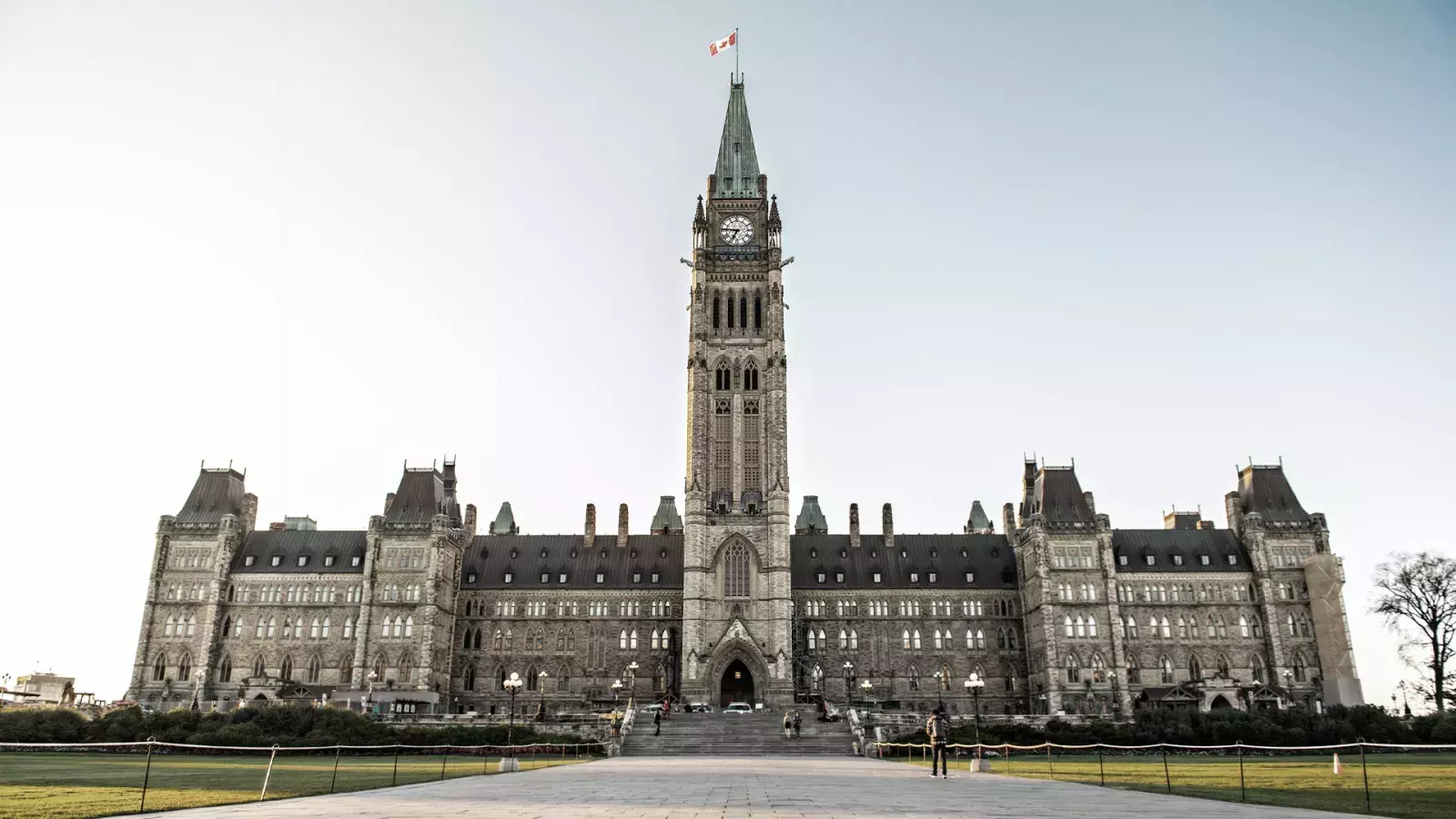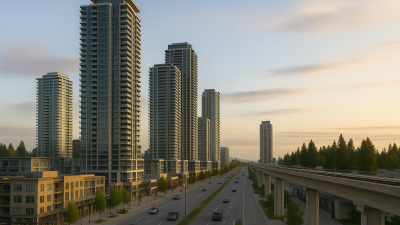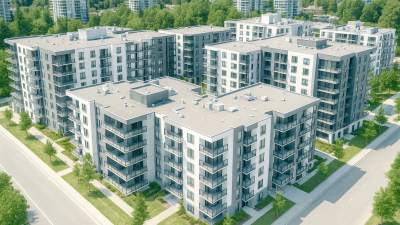September has seen a significant amount of activity from all levels of government on Canada’s hottest topic: housing affordability. To sum up what’s unfolding, we’ve outlined the most important changes seen this last month and asked MLA Advisory to discuss the impact of each action on Canada’s housing market.
GST REMOVED ON PURPOSE-BUILT APARTMENT BUILDINGS
On the 14th, the Liberal government announced the removal of GST on the construction of purpose-built rental units. This change was originally proposed during the election campaign of 2015, however, industry members can all agree that better is late than never. Effective immediately, the change increases the GST Rental Rebate from 36% to 100% on all new rental construction consisting of a minimum of four private dwelling units. In other words, rental developers will see their labour and materials costs lowered by 5% overall, a savings that will be sufficient to revive projects that might have otherwise failed in this economic environment.
Impact Rating: 9/10
Rationale: This has been a long-proposed change that significantly reduces the cost for developers building purpose-built rental units. The 5% reduction applies to the sticker price of the entire development and represents significant savings for a rental pro-forma. In an industry where the profit margins of a market condominium are often only between 10% and 15%, this is a significant step up. The change will greatly incentivize the construction of new purpose-built rentals which in term will help address current affordability issues.
VANCOUVER SHORT TERM RENTAL FEES INCREASED
In an effort to combat short-term rentals that could take housing options away from long-term tenants, the City of Vancouver is seeking to drastically raise short-term license. Currently, the cost of the license to operate a short-term rental is $109 annually. Vancouver staff have recommended the fees be increased to $450, with city Councillors introducing amendments that proposed the fee be increased to $1,000.
Impact Rating: 6/10
Rationale: While the proliferation of short-term rentals over the past few years has indeed impacted rental rates by lowering available long-term rental supply and increasing average costs, the effect may be overblown. As of September, there are approximately 4,400 AirBnB listings in Vancouver in comparison to the 115,000 purpose-built rentals in 2022 (as outlined by the Canadian Mortgage and Housing Corporation). An increase of $109 to $1,000, though a 10x increase, is unlikely to remove a significant number of listings from the market. The average AirBnB rate in Vancouver in 2021 was approximately $122 a night, so annual fees can be made up quickly. Anger at short-term rentals’ increasing affordability issues for long-term renters is misplaced when the much larger problem remains the overall rental stock.
‘MISSING MIDDLE’ HOUSING ZONING APPROVED
In another development related to Vancouver’s housing, city council approved a citywide densification for all RS-zoned single-family lots that allows for multiple dwellings on each lot. A standard size single family lot can now accommodate four units, and larger lots up to eight units.
Impact Rating: 8/10
Rationale: This approval has the potential for significant impact on the market by encouraging greater density across many zoning types. More units per lot not only allows households to live with family members, but it also allows households to rent out additional units for income. This in turn increases overall rental supply, which allows new families to enter the housing market with greater ease. The caveat is that the effects of this change will take time to be felt, as there will be lag time between the implementation and any meaningful densification.
$4B FEDERAL HOUSING ACCELERATOR FUND
Prime Minister Justin Trudeau announced the first agreement executed by the federal government’s Housing Accelerator Fund (HAF), a $4B initiative intended to increase housing supply across Canada. HAF was created to grant funding to local governments to support the rapid creation of 100,000 new middle-class homes across Canada during 2024 and 2025. The first agreement, with the City of London, Ontario is worth $74 million and will fast track more than 2,000 units within three years and more over the following several years.
Impact Rating: 5/10
Rationale: While infusions of capital to encourage development is undeniably welcome, the HAF in its current stage seems unlikely to have a major impact on affordability. Since the fund was officially launched in March 2022, only one project has received funding. At this trajectory, its impact may be minimal.
BC BUILDING CODE UPDATED
British Columbia's Building Code recently underwent major revisions, emphasizing enhanced accessibility and inclusivity in public buildings and residences. Environmental considerations and the region's seismic vulnerability resulted in stricter energy efficiency standards and robust design improvements.
Impact Rating: 8/10
Rationale: This is a meaningful change that will require noticeable changes to floorplans and footprints. For instance, developers now must rethink standard floor plans and the use of space to accommodate for widened accessibility. In the context of the Vancouver market, which has seen average unit sizes trend down steadily in an attempt to meet demand, this will make it more challenging to create efficient plans at low prices. Many developers are now racing to be “grandfathered” in before the change is implemented.
PROVINCIAL PERMITTING SERVICE IMPROVEMENTS
The Single Housing Application Service (SHAS), described by the province as a "one-stop shop" for permitting – was unveiled alongside incentives aimed at encouraging the creation of more secondary suites throughout the province. The service was created in response to approval timeline criticisms and aims to speed up the permitting process in order to add more housing supply more easily.
Impact Rating: 7-9/10
Rationale: The difficulty of the development approval process in B.C. is widely discussed in the real estate industry and is one of the top complaints within the development community. In theory, this proposal has the potential to be a game-changer. In practical application, various systems such as this one have been floated before without meaningful implementation. As of now, there is not enough information to accurately gauge if this will truly shorten approval timelines.
RENTAL INCREASE CAPPED AT 3.5%
Earlier this month, the provincial government set a rent increase cap at 3.5%, set to take effect on January 1, 2024. Both landlords and renters were left unsatisfied with this decision, with renters believing the increase was too high and landlords asserting the increase was not high enough to sustainably match the increase in costs.
Impact Rating: 8/10
Rationale: For obvious reasons, this announcement is very relevant to both landlords and renters. Landlords have faced over a year of spiking costs both in the services and goods required to maintain their property, but also in the financing of their mortgages. This 3.5% is much higher than previous years, which stayed around 1.5% to 2%, and is intended to alleviate some pressure on their cashflow. For tenants, this will be an additional strain during a time when savings are low and the economy uncertain. Despite this elevated rate, most tenants will likely still not be incentivized to move their current residences as the actual rental growth rate in the market (10% to 15% In 2022) still far outpaces the annual allotted increase.
To hear more about ongoing updates in the real estate landscape, sign up for the MLA Canada Newswire to receive daily intel.



